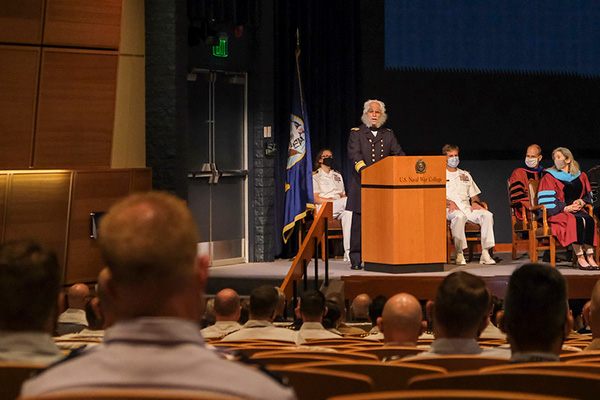Past Naval War College Presidents
From the time of its founder and first president, Rear Admiral Steven B. Luce in 1884, the U.S. Naval War College has been capably led to excel as the U.S. Navy's "Home of Thought." The vision and efforts of its storied presidents have ensured the college's place at the forefront of educating leaders, defining the future Navy, and informing decision making at the highest levels of government.
 Cmdr. Ty Lemerande, U.S. Naval War College (NWC), portrays Rear Adm. Stephen B. Luce, first president of NWC and provides remarks at the 2021-2022 academic year convocation ceremonies, August 4, 2021. The convocation ceremonies welcome joint service and international in-residence students at the U.S. Naval War College. (U.S. Navy photo by Cmdr. Gary Ross/released)
Cmdr. Ty Lemerande, U.S. Naval War College (NWC), portrays Rear Adm. Stephen B. Luce, first president of NWC and provides remarks at the 2021-2022 academic year convocation ceremonies, August 4, 2021. The convocation ceremonies welcome joint service and international in-residence students at the U.S. Naval War College. (U.S. Navy photo by Cmdr. Gary Ross/released)